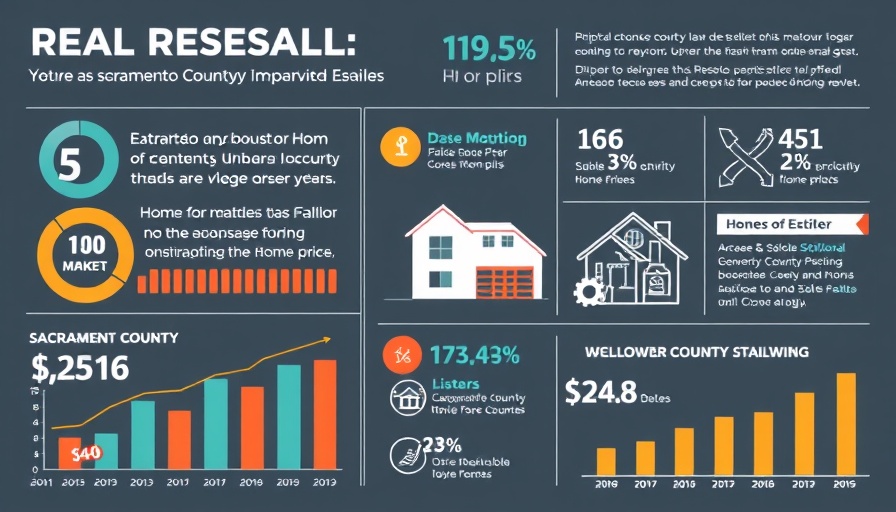
Understanding the Current Standoff in the Real Estate Market
As we dive deep into the current landscape of the real estate market, a palpable standoff exists between buyers and sellers. Sellers, steadfast in their pricing, seem poised to wait indefinitely for that ideal offer, while buyers are exercising unprecedented patience, unwilling to leap at properties that do not align with their expectations of value. This scenario evokes memories of the market's tumultuous past and raises pertinent questions about where we are heading.
Market Dynamics: The Buyers’ Timid Approach
Today’s buyers are much more cautious. The severity of rising interest rates and affordability challenges has made many potential homeowners reconsider their stride into the market. The fear of overpaying for a home in an unpredictable market environment is palpable among buyers, spurring them to adopt a 'wait and see' approach. This customer hesitance represents a fundamental shift from previous years where flipping houses or engaging in bidding wars was the norm.
Seller Expectations: Holding Out for the Unicorn Price
Sellers, too, find themselves in a challenging position. Many are attached to the notion that their property can fetch a pre-pandemic price, even if market indicators say otherwise. With sellers lacking urgency—some even not needing to sell—the market has seen a decrease in healthy negotiation practices. This refusal to budge, overshadowed by the fear of falling prices, drives a wedge between market realities and seller aspirations.
The Impact of Economic Uncertainty on Buyer Demand
The recent downturn in sales volume, marked notably in Sacramento County, illustrates just how quickly buyer sentiment can shift. Notably, May recorded one of the weakest performance months in recent history, highlighting the impact of economic uncertainties that influence potential buyers’ decisions. While the overall market may ebb and flow, this downturn signifies a crucial moment where both buyers and sellers must recalibrate their strategies.
Changes in Open House Traffic: A Drastic Shift
: A stark contrast to the frenzy of 2021, recent open houses contend with moderate foot traffic. Many agents have reported a dip in potential buyers attending viewings, an indication that the urgency of the market has diminished significantly. Compounding this is the lingering question consumers are asking: why is my property not selling? Engaging with real estate agents about current market trends reveals that many sellers are still mired in past expectations—an indicator of a disconnect between market realities and individual perceptions.
Lessons from the Past: Navigating Future Predictions
If history teaches us anything, it’s that the real estate market is cyclical. While the current conditions may seem stagnant, there is always the potential for recovery and growth. The key lies in understanding the demographics and evolving preferences of buyers and sellers. For instance, the millennial generation is increasingly focused on sustainable living and proximity to urban centers—an insight that savvy investors should leverage.
Actionable Insights: Steps for Buyers and Sellers
For buyers looking to navigate this standoff, it’s essential to stay informed of local market trends while remaining flexible in negotiations. Sellers, on the other hand, may benefit from reevaluating their pricing strategies, perhaps considering a fresh appraisal or seeking out market comparables to guide their pricing strategy. As both parties engage in smart negotiation practices, acknowledging present market conditions while leveraging strategic insights can lead to successful transactions.
Conclusion: The Path Forward
This standoff presents challenges, yet it also serves as an opportunity for both buyers and sellers to redefine their strategies. As the market evolves, staying informed and engaged will be crucial. Looking ahead, the potential reclamation of a more balanced market hinges on both parties finding common ground. Embrace the insights as you navigate through the standoff!
 Add Row
Add Row  Add
Add 




 Add Row
Add Row  Add
Add 
Write A Comment